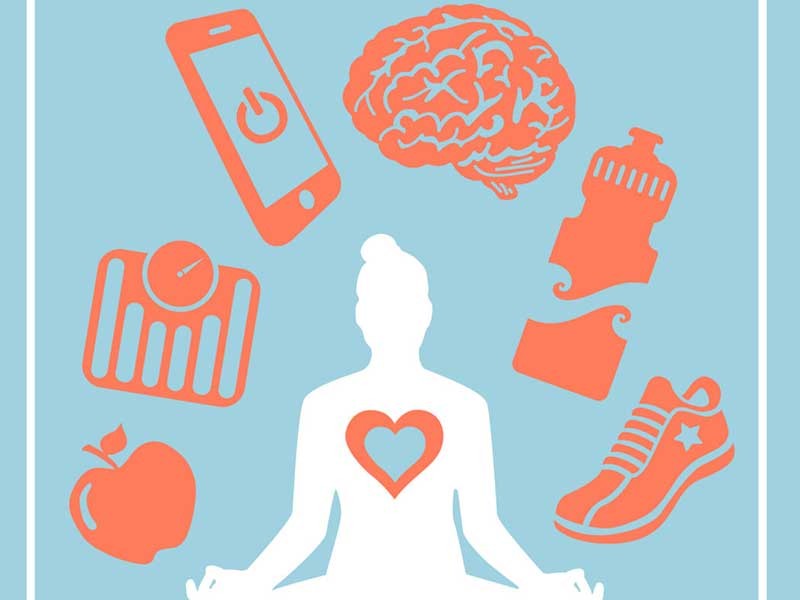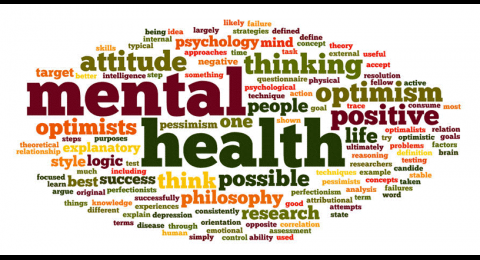Strategy for how to improve mental health

Introduction
How to improve mental health is a very important feature of our in general well-being and for our mental and psychological peace, influence that how we think, how we experience to improve mental health, and how we interrelate and behave with others. With increasing stress and pressure, nervousness, and force in today’s fast-paced world, maintains good mental health has turned into more vital and most important than ever.
Luckily, there are many effectual strategies and ways to improve mental health, ornamental our flexibility, our happiness, and our quality of life.
5 Ways to improve Mental Health
Maintaining optimal mental health is crucial for overall well-being. By incorporating simple yet effective strategies, you can enhance your mental resilience and cultivate a positive mindset. Here are five ways to improve mental health and unlock a happier, healthier you.
- Cultivate Gratitude: Focus on the good things in life by practicing gratitude. Keep a gratitude journal, write down three things you’re thankful for each day, or share your gratitude with a friend or family member.
- Embrace Nature Therapy: Spend time outdoors to boost your mood and reduce stress. Take a walk in a park, go for a hike, or simply sit in a garden or on a balcony with plants.
- Practice Self-Care: Make time for activities that nourish your mind, body, and soul. Engage in hobbies, practice yoga or meditation, or indulge in a relaxing bath.
- Foster Meaningful Connections: Build and maintain strong relationships with loved ones, friends, and colleagues. Social connections can help you feel supported, reduce stress, and increase happiness.
- Challenge Negative Thoughts: Develop a growth mindset by recognizing and reframing negative thought patterns. Practice cognitive-behavioral therapy (CBT) techniques, such as journaling or talking to a therapist, to help you manage stress and anxiety.
How to improve Mental Emotional Health?
Mental-emotional health is the foundation of overall well-being, influencing our thoughts, emotions, and behaviors. Cultivating a healthy mental-emotional state requires a multifaceted approach. Here are some evidence-based strategies to improve mental-emotional health:
Self-Awareness and Reflection
- Mindfulness and Meditation: Regular mindfulness practices help develop self-awareness, reducing stress and anxiety.
- Journaling: Reflecting on thoughts, emotions, and experiences through journaling fosters emotional intelligence and introspection.
Emotional Regulation and Resilience
- Emotional Labeling: Recognize and acknowledge emotions, rather than suppressing or denying them.
- Grounding Techniques: Use sensory experiences, such as deep breathing or progressive muscle relaxation, to manage overwhelming emotions.
Social Connections and Support
- Nurture Relationships: Foster strong, supportive relationships with family, friends, and community networks.
- Seek Professional Help: Consult with mental health professionals when needed, to address specific challenges or concerns.
Physical Well-being and Lifestyle
- Regular Exercise: Engage in moderate-intensity physical activity to reduce stress, improve mood, and enhance cognitive function.
- Balanced Nutrition: Fuel your body with a balanced diet, rich in whole foods, fruits, vegetables, and omega-3 fatty acids.
By incorporating these strategies into your daily life, you’ll be well on your way to improving your mental-emotional health and cultivating a more resilient, balanced, and fulfilling life.
How to improve Mental Health at work place?
Maintaining good mental health is crucial for overall well-being, and the workplace plays a significant role in supporting employees’ mental health. A healthy work environment fosters productivity, creativity, and job satisfaction. Here are some evidence-based strategies to improve mental health at the workplace:
Fostering Open Communication
- Encourage Transparency: Create a safe and supportive environment where employees feel comfortable discussing their mental health concerns.
- Regular Check-Ins: Hold regular one-on-one meetings or team discussions to monitor employees’ well-being and provide support.
Promoting Work-Life Balance
- Flexible Work Arrangements: Offer flexible work schedules, telecommuting options, or compressed workweeks to help employees manage work and personal responsibilities.
- Employee Wellness Programs: Implement wellness initiatives, such as mindfulness sessions, yoga classes, or employee assistance programs (EAPs), to support employees’ mental health.
Reducing Stress and Burnout
- Manageable Workloads: Ensure employees have realistic workloads and deadlines to prevent overwhelm and burnout.
- Recognition and Rewards: Acknowledge and reward employees’ achievements and contributions to boost morale and motivation.
By implementing these strategies, organizations can create a supportive work environment that prioritizes employees’ mental health, leading to improved productivity, job satisfaction, and overall well-being.
How to help Men’s Mental Health?
Men’s mental health is often stigmatized, leading to a culture of silence and suffering. It’s essential to encourage men to open up about their emotions and seek help when needed. Here are some ways to support men’s mental health:
Encouraging Open Conversations
- Create a Safe Space: Foster an environment where men feel comfortable discussing their emotions without fear of judgment.
- Active Listening: Listen attentively to men’s concerns, and validate their emotions to help them feel heard.
Promoting Healthy Coping Mechanisms
- Exercise and Physical Activity: Encourage men to engage in regular exercise, sports, or other physical activities to reduce stress and anxiety.
- Hobbies and Interests: Support men in exploring hobbies and interests outside of work or family responsibilities to promote relaxation and fulfillment.
Address Underlying Issues
- Trauma and Past Experiences: Encourage men to address past traumas or experiences that may be contributing to their mental health struggles.
- Social Connections: Help men build and maintain strong social connections with friends, family, and community networks to reduce feelings of isolation.
By implementing these strategies, we can help break the stigma surrounding men’s mental health and encourage men to seek help when needed.
How to help my mental health at home?
Creating a supportive environment at home is crucial for maintaining good mental health. By incorporating simple yet effective habits into your daily routine, you can cultivate a sense of calm, reduce stress, and promote overall well-being. Here are some practical tips to help you support your mental health at home:
Creating a Soothing Atmosphere
- Calming Colors: Surround yourself with calming colors like blue, green, or neutral tones to promote relaxation.
- Comforting Textures: Incorporate comfortable textiles like plush blankets, soft cushions, or cozy rugs to create a sense of security.
Prioritizing Self-Care
- Mindful Moments: Set aside time for mindfulness practices like meditation, deep breathing, or guided relaxation.
- Physical Activity: Engage in regular physical activity, like yoga or walking, to release endorphins and boost mood.
Fostering Positive Habits
- Gratitude Practice: Reflect on things you’re grateful for each day to cultivate a positive mindset.
- Healthy Sleep Routine: Establish a consistent sleep schedule and create a relaxing bedtime routine to improve sleep quality.
By incorporating these simple yet powerful strategies into your daily routine, you can create a nurturing environment that supports your mental health and well-being.
How to help mental health crisis?
Mental health crises can be overwhelming and distressing for individuals and their loved ones. Knowing how to respond effectively is crucial in providing support and care during these critical moments. Here are some strategies to help you navigate mental health crises:
Emergency Response
- Call Emergency Services: If the individual is in immediate danger or experiencing a life-threatening crisis, call emergency services or the national crisis hotline.
- Stay Calm and Supportive: Remain calm, empathetic, and non-judgmental to help the individual feel safe and supported.
Crisis Intervention Techniques
- Active Listening: Listen attentively to the individual’s concerns, validating their emotions and experiences.
- De-Escalation Techniques: Use calming strategies, such as deep breathing, progressive muscle relaxation, or visualization, to help reduce anxiety and agitation.
Post-Crisis Support
- Encourage Professional Help: Support the individual in seeking professional help from a mental health expert, such as a therapist or counselor.
- Foster a Supportive Network: Help the individual build a strong support network of family, friends, and peers to provide ongoing care and encouragement.
By employing these strategies, you can provide critical support and care during mental health crises, helping individuals navigate these challenging moments and access the help they need.
To Understand Mental Health and care
Before plunging into development planning, it’s mandatory to understand mental and psychological health. Mental health encompasses moving, emotional, and common happiness, moving our opinion, behaviors, and connections. Good mental health enable us to: feel stress and adversity; form significant associations; and make knowledgeable decision.
Enjoy life’s experience. Keep physical health.
Personal-Care: the base of Mental Wellness
Personal-care is the foundation stone of mental health development. Simple practice can considerably increase well-being.

Mindfulness and thought:
Regular mindfulness practice reduces pressure, nervousness, and despair.
Do exercises:
Physical activity release endorphins, improving mood and power.
Sleep:
Healthy consumption
Whenever you take any diet, take of fair diets hold up mental health, energy, power and center.
Structure pliability:
Pliability helps manage with life’s challenge.
Positive Thinking:
Give attention on strength, activities, and thankfulness.
Goal Setting:
Attain small goals, structure self-assurance and incentive.
Social Connections:
Care for relations with helpful family, friends, and group of people.
Moving Regulation
Be familiar with, state, and manage emotion efficiently.
Managing stress and anxiety:
Effectual stress managing is very and most important.
Time Management:
Prioritize responsibilities, set sensible goals, and take break in our daily and hectic routine in order to develop and maintain peace and healthy mind in our life.
Rest and relaxation Techniques
Discover yoga, deep breathing, or progressive muscle relaxation.
Look for Support:
Talk to trusted persons or mental health professional.
Free time Activities:
Connect in pleasant hobbies, promote relaxation and pleasure.
Looking for Professional Help
From time to time, professional support is essential.
Therapy:
It includes Cognitive-behavioral therapy (CBT), psychodynamic treatment, or other approach.
Counseling:
It includes Persons, group or family therapy.
Maintain Groups:
It includes Link community’s distribution similar experiences.
Mental Health Professionals:
Consult psychologists, psychiatrist, or approved therapist.
Mental Health first Aid
Mental Health First Aid (MHFA) is a vital training program that equips individuals with the skills and knowledge to identify, understand, and respond to mental health issues. By providing mental health first aid, you can make a significant difference in someone’s life, helping them navigate mental health challenges and access professional support.
Key Principles of Mental Health First Aid
- Assessing for Risk: Identify warning signs of mental health crises, such as suicidal thoughts or severe emotional distress.
- Providing Support: Listen non-judgmentally, offer reassurance, and encourage the individual to seek professional help.
- Preserving Life: In severe cases, take steps to preserve life, such as calling emergency services or staying with the individual until help arrives.
Mental Health First Aid Techniques
- ALGEE Action Plan: Use the ALGEE acronym to guide your response: Assess, Listen, Give reassurance, Encourage professional help, and Encourage self-care.
- Mental Health Resources: Familiarize yourself with local mental health resources, such as crisis hotlines, counseling services, and support groups.
By learning mental health first aid techniques, you can become a vital support system for individuals facing mental health challenges, helping them navigate difficult times and access the professional help they need.
Conclusion
Improving mental health needs promises, tolerance, and self-awareness and self confidence. By incorporate self-care practices, construction pliability, managing stress, and in search of professional help when needed, you can: – improve in general well-being; – increase confidence and self-worth; – expand coping strategies; – promote significant relations; – improve physical health. Always keeping in mind, mental and psychological health is a ongoing journey, not the end point or destination. By prioritizing your mental well-being, you’ll be better ready to find the way life’s challenges, achieve a happier, healthier, and further fulfilling life.
For related Articles click here
Frequently Asked Questions
-
Why mental health is important in our life?
Mental health is important in our life because it increases overall health and well being, and keep our life peaceful
-
How much a normal person should sleep to improve our mental health?
Almost 7-8 hours in a day


4 thoughts on “How to improve mental health?”
A very helpful & a basic guide that everyone must go through to help theirs or their loved once mental health …